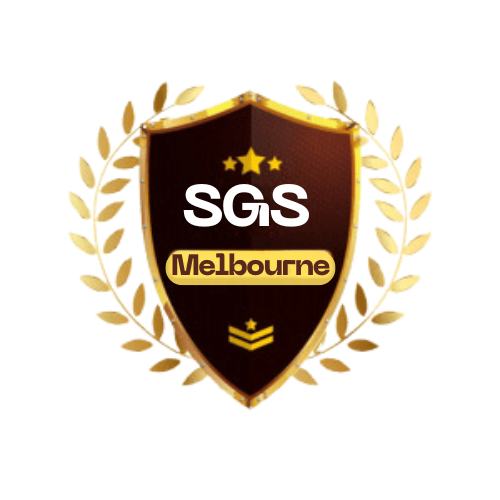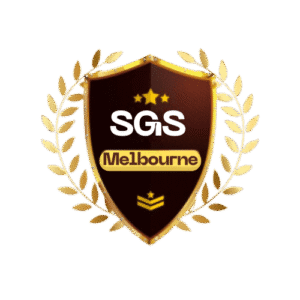Essential accessories and instruments for security guard for night duty
July 31, 2024
While two-way radios are ideal for on-site communication, mobile phones are indispensable for emergency contact and broader communication needs. In situations where guards need to call emergency services or contact off-site personnel, mobile phones provide a direct line of communication. Additionally, smartphones offer access to useful applications, such as maps and incident reporting tools, enhancing the guard’s capabilities on the job.
Protective Gear:
Helmet:
Protecting the head is paramount in situations involving physical confrontations or potential falling objects. A sturdy helmet can prevent serious head injuries, which are often life-threatening. For security guards working in environments where there is a risk of projectiles or physical attacks, a helmet is an essential piece of equipment that enhances personal safety.
Gloves:
Gloves are an often overlooked but essential part of a security guard’s gear. They offer protection against cuts, abrasions, and other injuries while also improving grip. This is particularly important when handling rough or hazardous materials, performing physical tasks, or engaging in confrontations. The right pair of gloves can significantly enhance a guard’s ability to perform their duties safely and effectively.
Defensive Equipment:
Pepper Spray:
As a non-lethal means of self-defense, pepper spray is an invaluable tool for security guards. It can incapacitate an aggressor temporarily, allowing the guard to maintain control of the situation without resorting to lethal force. Pepper spray is easy to carry and use, making it a practical option for a wide range of scenarios, from deterring attackers to managing unruly crowds.
Baton:
A baton is a versatile defensive tool that can be used to maintain control and protect the guard during confrontations. It offers a physical deterrent and can be employed to defend against attacks or subdue suspects. Proper training in baton use is essential to ensure that security guards can wield this tool effectively and safely, minimizing the risk of injury to themselves and others.
Taser:
Providing a non-lethal option to incapacitate an aggressor, a taser is a valuable addition to a security guard’s defensive arsenal. Tasers deliver an electric shock that temporarily disrupts muscle control, allowing the guard to restrain the suspect without causing permanent harm. The presence of a taser can also serve as a powerful deterrent, reducing the likelihood of physical confrontations.
Surveillance Tools:
Body Camera:
Body cameras have become increasingly important for security guards, providing a means to record interactions and incidents for evidence and accountability. These devices capture real-time footage, which can be invaluable in resolving disputes, documenting incidents, and providing transparency. Body cameras also serve as a deterrent to improper behavior, knowing that actions are being recorded.
Binoculars:
For security guards responsible for monitoring large areas or distant objects, binoculars are an essential tool. They allow guards to observe areas that are far away, identify potential threats, and monitor activities without having to move from their position. High-quality binoculars can enhance a guard’s situational awareness, enabling them to detect and respond to incidents more effectively.
Documentation Tools:
Notebook and Pen:
Despite the prevalence of digital tools, a notebook and pen remain essential for security guards. They provide a reliable means to take notes on incidents, record important information, and keep track of daily activities. Written records can be crucial for incident reports, legal documentation, and maintaining an accurate account of events.
Digital Camera:
Capturing images of incidents, suspects, and evidence is a key part of a security guard’s responsibilities. A digital camera allows for clear, high-quality photos that can be used in reports and investigations. Having photographic evidence can significantly enhance the credibility of reports and provide critical information for resolving incidents.
Navigation Tools:
GPS Device:
Navigating large or unfamiliar areas can be challenging for security guards. A GPS device provides accurate location information, helping guards to move efficiently and reach their destinations quickly. It can also be used to track the guard’s movements, ensuring they cover all necessary areas during their patrols.
Map:
While digital navigation tools are invaluable, a physical map is a reliable backup that doesn’t depend on batteries or a signal. It can be particularly useful for planning routes, understanding the layout of the premises, and ensuring that guards are familiar with all key locations. Having a map on hand ensures that guards can always find their way, even in challenging conditions.
Footwear:
Sturdy Boots:
Security guards often spend long hours on their feet, making comfortable and protective footwear essential. Sturdy boots provide the support needed to prevent foot fatigue, reduce the risk of injury, and ensure that guards can move quickly and confidently. Good quality boots are an investment in the guard’s health and performance, enabling them to carry out their duties effectively.
Miscellaneous:
Handcuffs:
Handcuffs are a critical tool for detaining suspects until law enforcement arrives. They provide a secure means of restraint, ensuring the safety of both the guard and the suspect. Proper training in the use of handcuffs is essential to ensure they are used correctly and humanely, preventing injuries and legal issues.
Key Holder:
Keeping keys organized and easily accessible is vital for security guards who manage multiple access points. A reliable key holder ensures that guards can quickly access the keys they need, reducing delays and improving efficiency. It also helps to prevent the loss of keys, which can compromise security.
Personal Alarm:
A personal alarm is a compact device that can be used to attract attention in an emergency. When activated, it emits a loud noise designed to deter attackers and alert others to the guard’s need for help. Personal alarms are easy to carry and use, providing an additional layer of security for guards in potentially dangerous situations.
Essentials for Every Security Guard Working the Night Shift
Two-Way Radio:
Essential for seamless communication, two-way radios allow security guards to stay in constant contact with each other and the control center both at night and day time. These devices are crucial for coordinating efforts, reporting incidents, and requesting backup. The quick and reliable communication provided by two-way radios ensures that guards can respond to situations promptly and effectively, reducing response times and enhancing overall security.
Bulletproof Vest:
A bulletproof vest is a vital piece of protective gear for security guards, especially those working in high-risk areas. These vests provide critical protection against firearms and other ballistic threats, increasing the guard’s chances of surviving a potentially deadly encounter. Wearing a bulletproof vest can also boost the guard’s confidence, knowing they have an added layer of defense in dangerous situations.
Flashlight:
A flashlight is a crucial tool for security guards, especially those working night shifts or in dimly lit areas. It provides the necessary illumination to navigate dark environments, inspect suspicious areas, and identify potential threats. A reliable, high-powered flashlight can enhance a guard’s ability to perform their duties effectively and ensure safety during nighttime operations.
First Aid Kit:
Being able to provide immediate medical assistance is crucial for security guards. A well-stocked first aid kit ensures that guards can treat minor injuries, stabilize serious conditions until professional help arrives, and offer basic medical care to themselves or others. Having first aid supplies readily available can make a significant difference in emergency situations.
Whistle:
A whistle is a simple yet effective tool for signalling for help or alerting others to danger. In loud or chaotic environments, a whistle can cut through noise and attract attention quickly at night shifts. Security guards can use it to call for backup, warn others of an immediate threat, or communicate in situations where verbal communication is not possible.
FAQ’s
Why is a two-way radio essential for security guards?
A two-way radio is crucial for maintaining constant communication with other guards and the control center, ensuring quick and effective coordination during emergencies. Learn more about the responsibilities of security guards in Australia.
What protective gear is most important for security guards?
Essential protective gear includes bulletproof vests, helmets, and gloves, which safeguard guards in potentially dangerous situations. For a comprehensive understanding of what security guards can and cannot do, check out this link.
How does pepper spray help in security duties?
Pepper spray is a non-lethal means of self-defense that temporarily incapacitates aggressors, allowing guards to manage situations safely. Discover why security uniforms are essential for guards.
Why is a body camera important for security guards?
Body cameras record interactions and incidents, providing valuable evidence and enhancing accountability.
What should be included in a security guard’s first aid kit?
A well-stocked first aid kit is crucial for treating minor injuries and stabilizing serious conditions until professional help arrives.
How do GPS devices benefit security guards?
GPS devices help guards navigate large or unfamiliar areas efficiently, ensuring comprehensive patrol coverage and enhanced situational awareness.
What is the purpose of a personal alarm for security guards?
A personal alarm emits a loud noise to attract attention during emergencies, deterring attackers and alerting others to the guard’s need for assistance.



